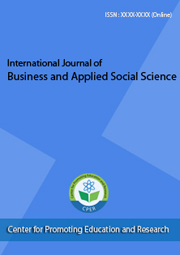current
Table of Contents
Articles
Author(s): Afshan Younas; Aza Azlina Md Kassim
Abstract:
Financial scandals have diverted the attention of investors, shareholders, lenders, and different stakeholders toward the corporate governance mechanism. Under the corporate governance system, the conflicts between different stakeholders are managed and controlled. Several variables work as proxies of corporate governance systems. The audit committee structure is an important tool to mitigate the adverse effects of agency problems. This study focuses on the impact of audit committee characteristics on the capital structure. The main purpose of this study is to examine the relationship between audit committee effectiveness and the leverage of the firms. Three proxies of audit committee (AC) structure are used such as AC meeting frequency, AC size, and AC independence, whereas leverage ratio is used to reflect capital structure. The study is conducted on the listed companies in the Sultanate of Oman for the period 2016 to 2019. The result of the study shows a significant negative relationship between AC meeting frequency and AC size with leverage. Whereas AC independence does not show any association with leverage in the case of Omani-listed firms. The result confirms the agency theory notion that the corporate governance system is an effective tool to balance the interest of different stakeholders and control the leverage of the firm. This study provides valuable findings to regulatory bodies and decision-makers to keep the balance capital structure through an effective audit committee structure.






